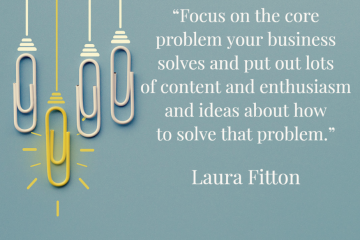It’s Not What You Pay, it’s the Value You Receive
In today’s consumer-driven society, the price of a product or service often takes centre stage. Advertisements scream discounts, sales, and bargains, directing our attention to how much we can save rather than the inherent value of what we’re buying. While price is an important consideration in any transaction, it’s crucial to step back and look at the bigger picture: it’s not about how much you pay, but rather the value you receive for what you pay.
Price is the monetary cost of a product or service, while value encompasses the tangible and intangible benefits one receives in return. For instance, a £10 t-shirt that falls apart after a few washes offers less value than a £30 t-shirt that lasts for years and feels comfortable. The cheaper t-shirt might be enticing at first, but in the long run, the pricier one proves to be a better investment.
Value is often intangible, and it varies from person to person. What holds great value for one individual may hold less for another. Take, for instance, a high-end restaurant meal. While some may see it as an extravagant expense, others may view it as a worthwhile experience, cherishing the ambiance, the quality of ingredients, and the skill of the chef, the quality of the food and the exquisite service.
When evaluating a purchase, it’s also important to consider its long-term implications. A quality product might come with a higher upfront cost but could save money in the long run due to its durability and efficiency. Conversely, going for the cheaper option can sometimes lead to recurrent replacement or repair costs, making it more expensive over time.
The emotional and psychological satisfaction derived from a purchase can significantly influence perceived value. For example, supporting a local business might bring a sense of community and fulfilment, making the slightly higher prices more than worth it. On the other hand, buying from a brand with questionable ethics, even if cheaper, might not sit well with a consumer’s conscience.
When making a purchase, it’s also essential to consider the opportunity cost, which refers to the value of the next best alternative that you forgo. For instance, if you spend money on a high-end gadget, you might be foregoing a vacation or other experiences. Whether the gadget’s value outweighs the missed opportunities is a subjective call that each consumer must make.
While there’s a general notion that higher-priced items offer better quality, this isn’t always true. In many industries, branding, marketing, and other external factors can inflate prices without a corresponding increase in actual value. Being an informed consumer means looking past the price tag and researching to ensure you’re getting genuine value for your money.
In a world obsessed with discounts and deals, it’s easy to lose sight of what truly matters. While price is an essential factor, it shouldn’t be the sole determinant in our purchasing decisions. Whether it’s a product, a service, or an experience, what truly counts is the value it brings to our lives. By shifting our focus from price to value, we can make more informed, satisfying, and worthwhile choices.
The best advice I have been given on this subject is to remove the word “cost” from your vocabulary and replace it with the word “investment” then what you pay is relevant to what you will get back from that investment.
Get touch to find out more.
Follow me on LinkedIn








0 Comments